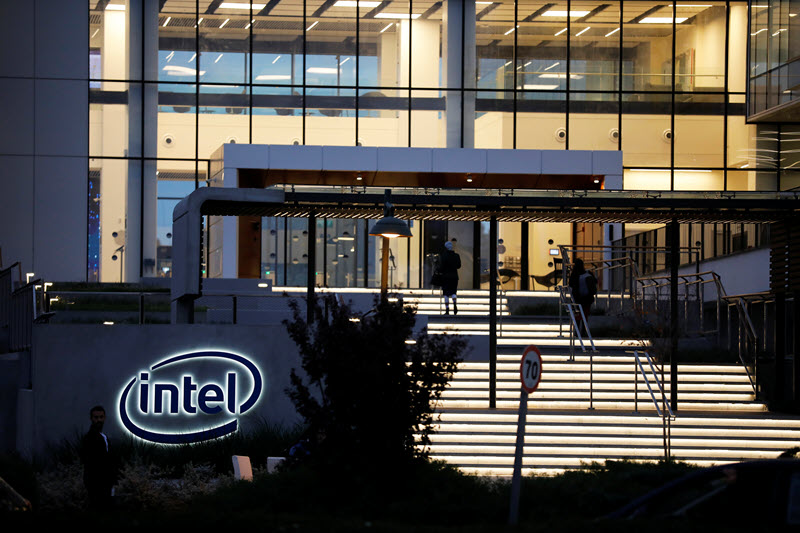Quiver Quantitative - Despite facing declining sales in its recent quarter, Intel (NASDAQ:INTC) remains optimistic. The chip manufacturer recorded a drop in revenue and profits due to faltering personal-computer and server sales, negatively impacting its core chip market. However, Intel's shares climbed by about 6% in after-hours trading, fueled by results and predictions that outperformed analyst projections. These gains suggest a budding revival in the PC sector and a burgeoning interest in artificial intelligence computation. Prior to this, the company's stocks had appreciated by 23% for the year, marginally trailing the PHLX Semiconductor Index.
CEO Pat Gelsinger's leadership and vision for Intel's renaissance as a chip-making titan remain central to its strategic endeavors. With aspirations to match or surpass Asian rivals in crafting the highest-performing chips and augmenting chip production for various companies, Gelsinger's tenure at the helm has produced some of Intel's most robust outcomes yet. While third-quarter sales at $14.2 billion marked an 8% decline from the previous year, they did surpass Wall Street's expectations. The reported net income of $310 million, though significantly diminished, still exceeded forecasts.
Challenges stemming from a sluggish PC market, exacerbated by a chip shortage during the pandemic, followed by an inventory surplus as demand waned, have significantly tested Intel. Nonetheless, recent indicators hint at a possible upturn. According to the International Data Corporation, overall PC shipments dropped by 7.6% YoY in Q3. Yet, Intel reported a mere 3% decline in its PC chips division, amounting to sales of $7.9 billion. Gelsinger expressed optimism over these figures, noting sales were "comfortably better than expected."
While Intel is a leading supplier for personal computer CPUs and data center chips, competition has steadily eroded its market share, particularly with AI chipmakers like Nvidia (NVDA) gaining significant traction. Nevertheless, Intel remains committed to tapping into the AI computation market, with plans to unveil chips enhanced with AI features soon. Gelsinger envisions this technology as a pivotal moment for PCs. Moreover, in efforts to diversify and bolster its offerings, Intel is investing in new chip plant ventures across global locations, speeding up chip development, and adopting cost-cutting measures, targeting savings up to $10 billion by 2025.
This article was originally published on Quiver Quantitative
